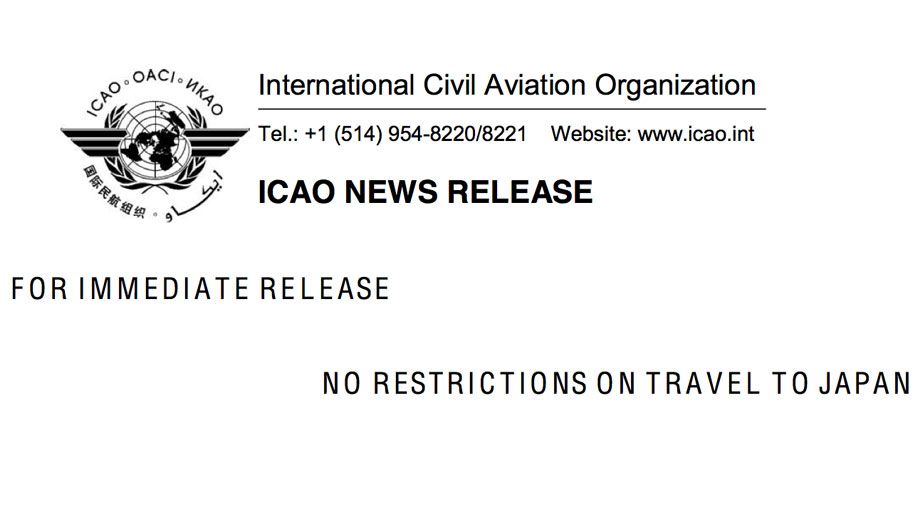In an unusual coordinated joint statement, four UN safety and human health regulators (IAEA, ICAO, IMO, and WHO) are reassuring travellers and airlines that it is safe to travel to Japan.
"International flight and maritime operations can continue normally into and out of Japan’s major airports and sea ports, excluding those damaged by the tsunami," according to four UN organisations:
- IAEA, the International Atomic Energy Agency
- ICAO, the International Civil Aviation Organisation
- IMO, the International Maritime Organisation
- WHO, the World Health Organisation
The statement from the four organisations also says that "screening for radiation of international passengers from Japan is not considered necessary at this time."
The World Health Organisation issued a further statement of reassurance for travellers concerned about health impacts from the ongoing problems at the Fukushima nuclear power facilities.
"WHO is not advising general restrictions on travel to Japan. However, travellers should avoid travel to the areas most affected by the earthquake and tsunami because of disruptions to essential services, such as transport and electric power, and the ongoing disaster relief activities."
IATA, the International Air Transport Association, which represents airlines, welcomed the reassurance from the UN organisations.
"There are no restrictions to normal air transport operations at Japan's major airports, including both Haneda and Narita" in Tokyo, IATA said in a statement.
However, the statement has not yet led Australia's DFAT to revise its Smartraveller advice, which still has Tokyo and the eastern half of Japan on the "do not travel" list. As a result, Australian travel insurers are unlikely to pay out on claims in Japan that result from disruption.

Hi Guest, join in the discussion on It is safe to travel to Japan, say UN regulators